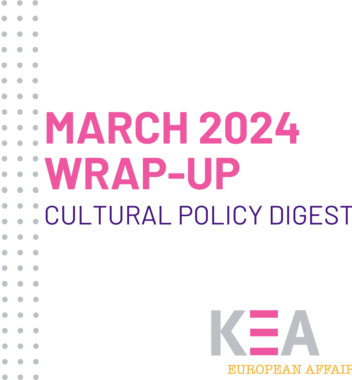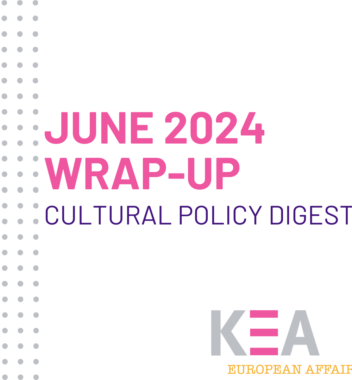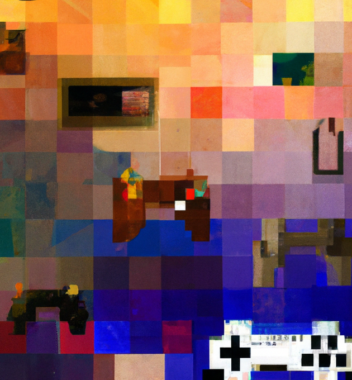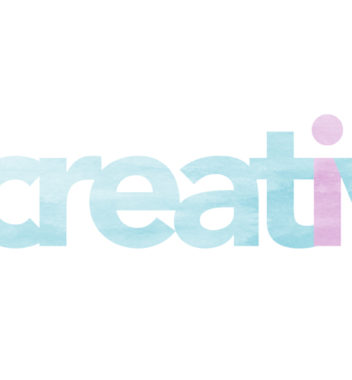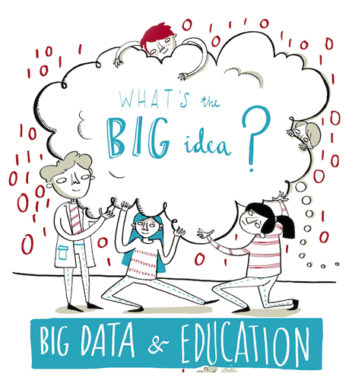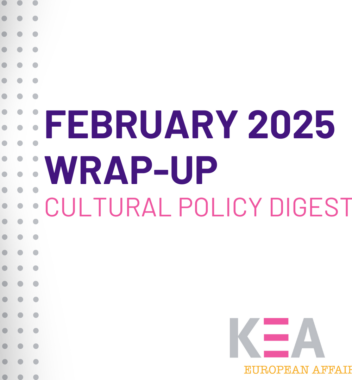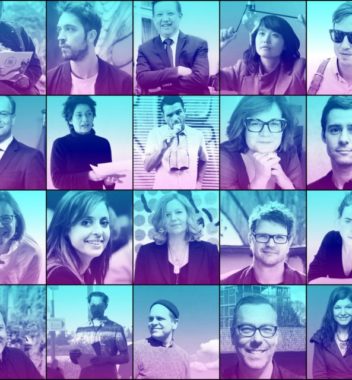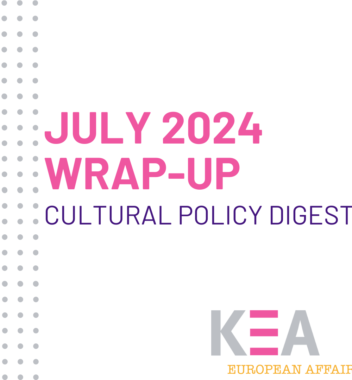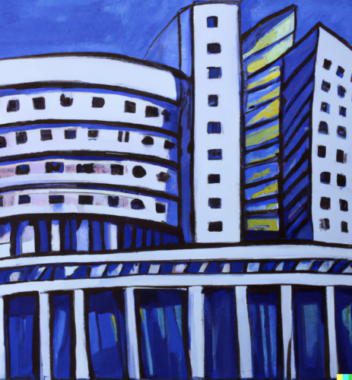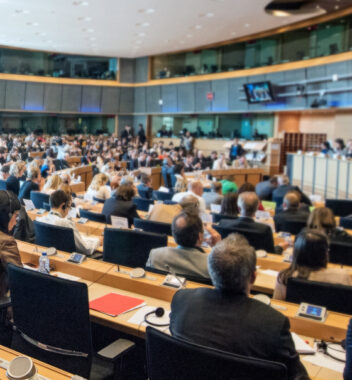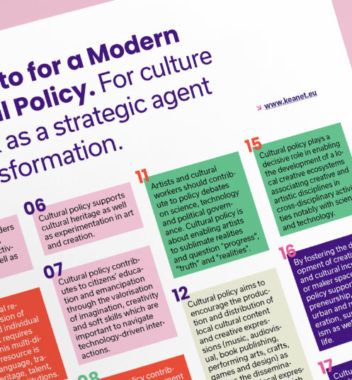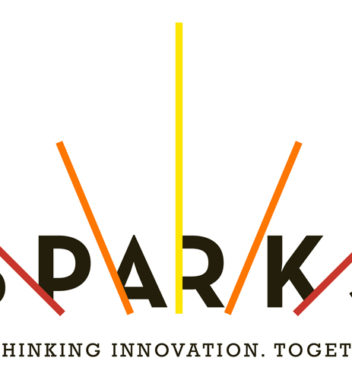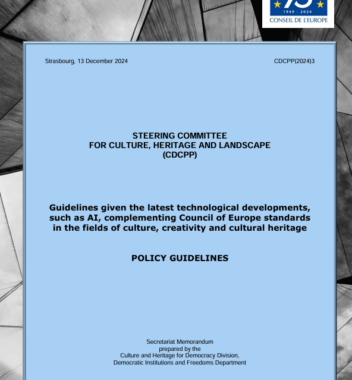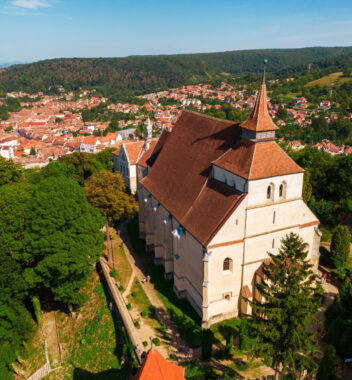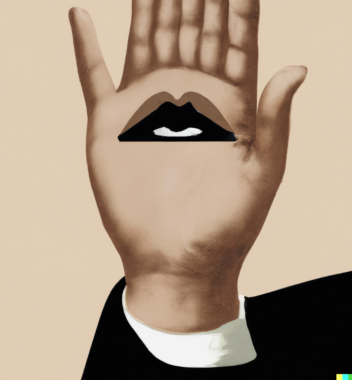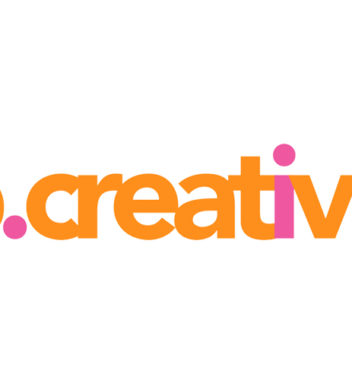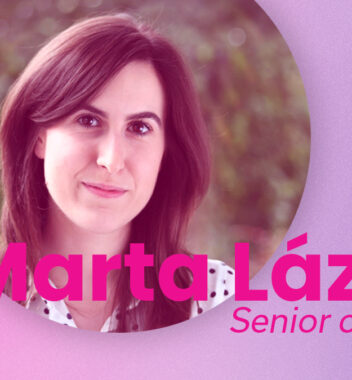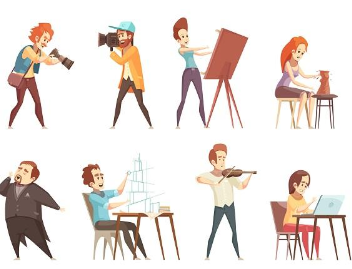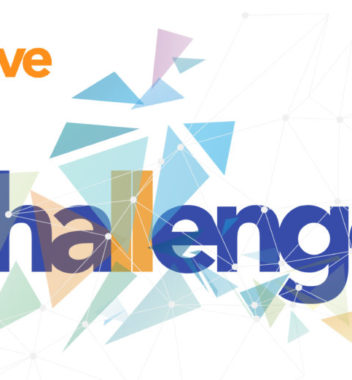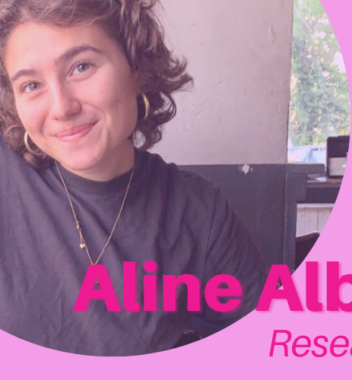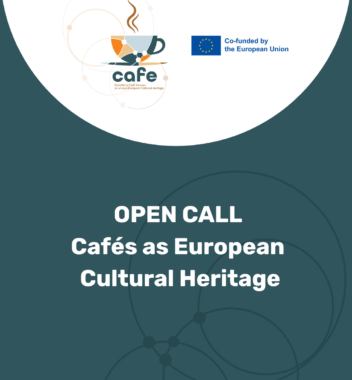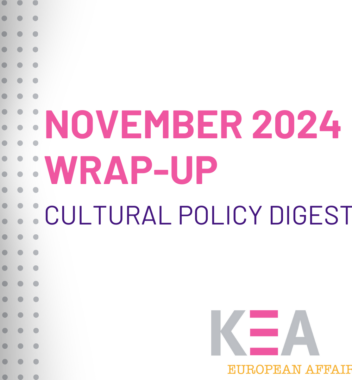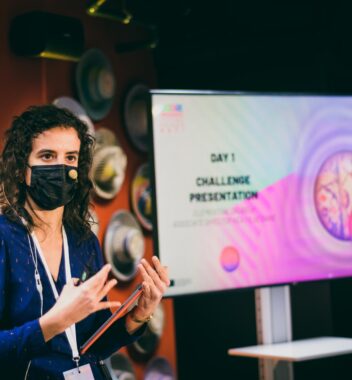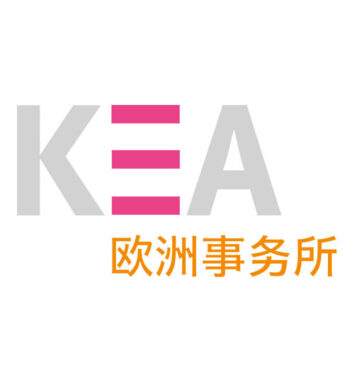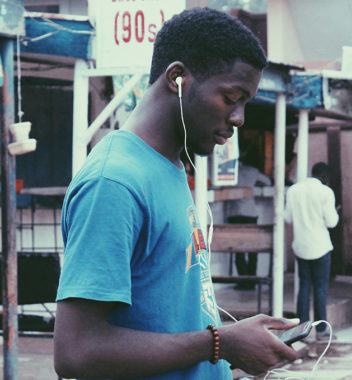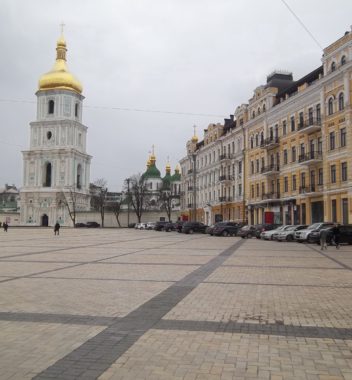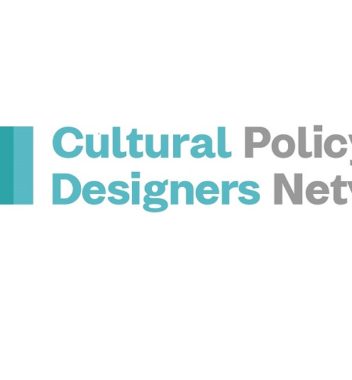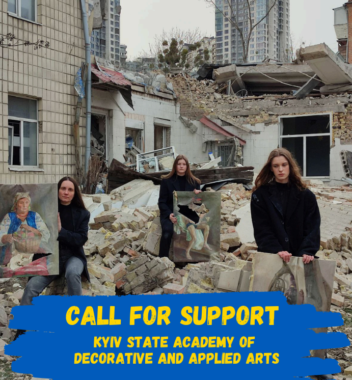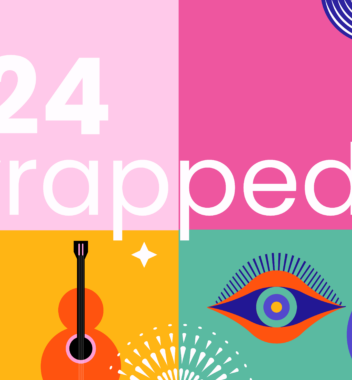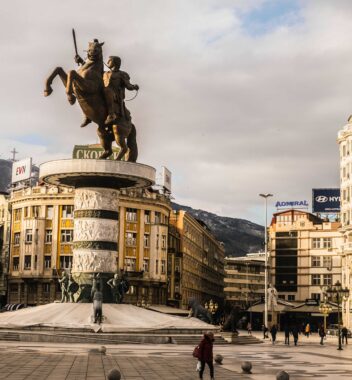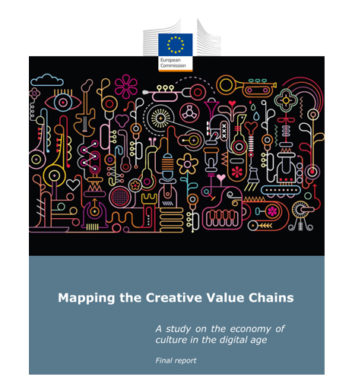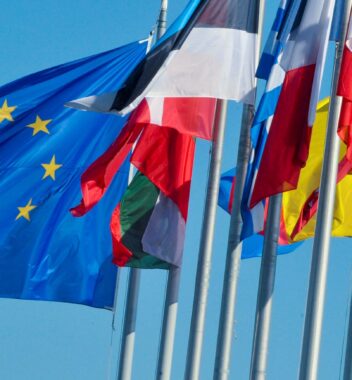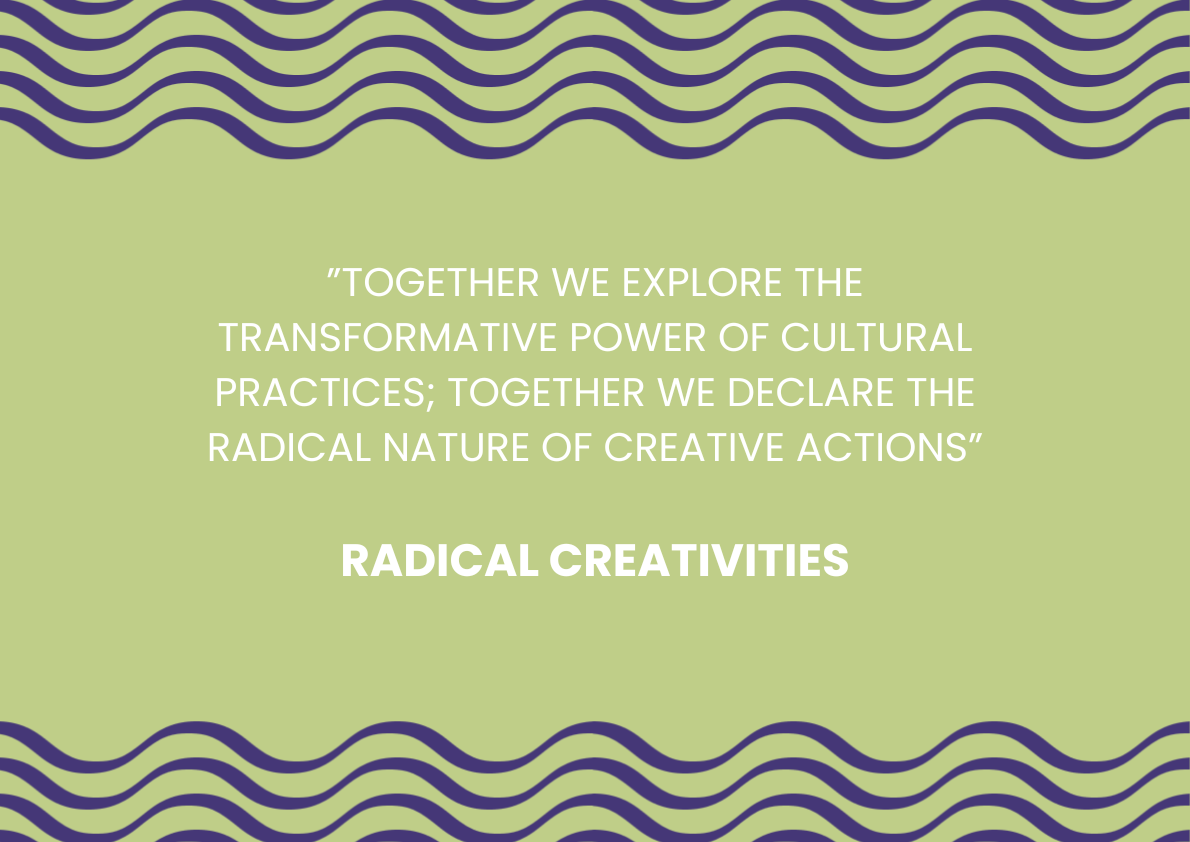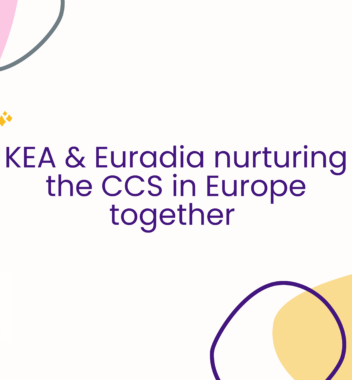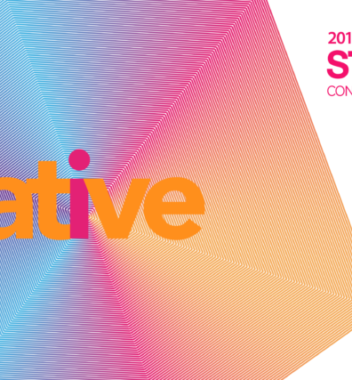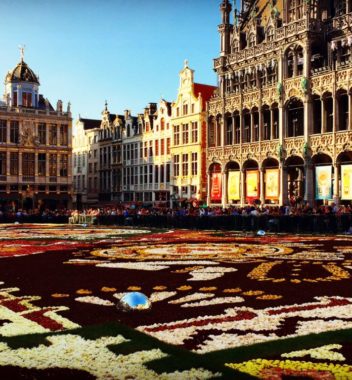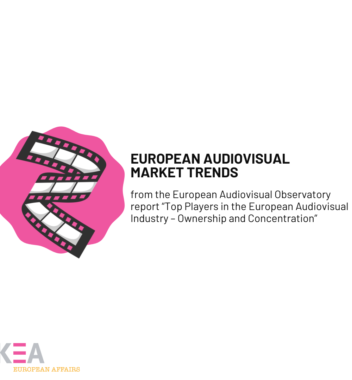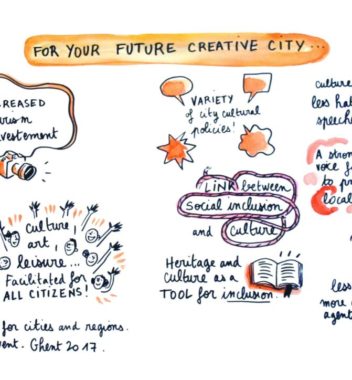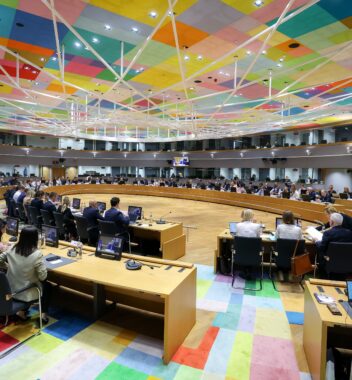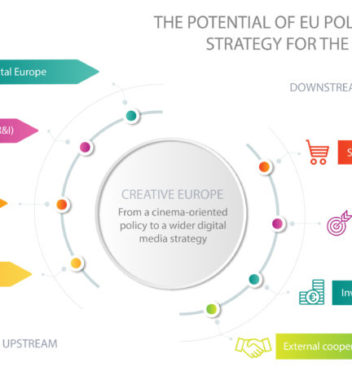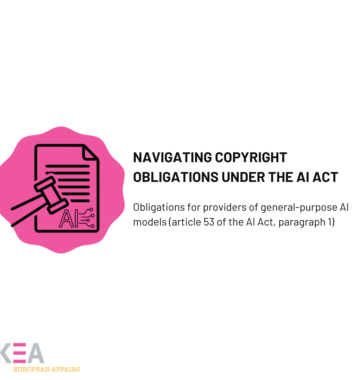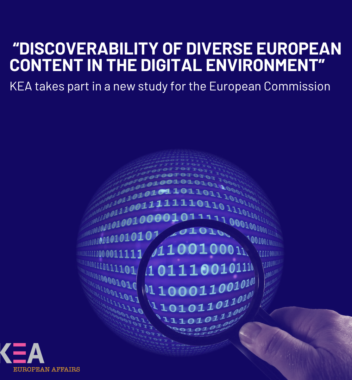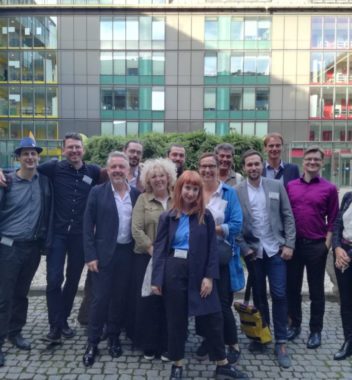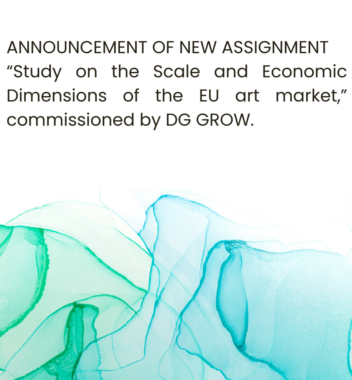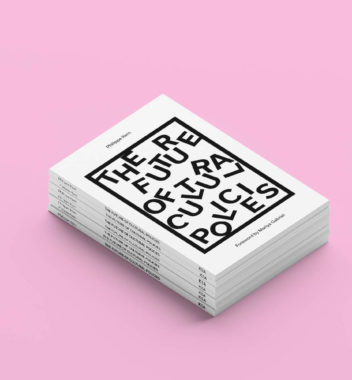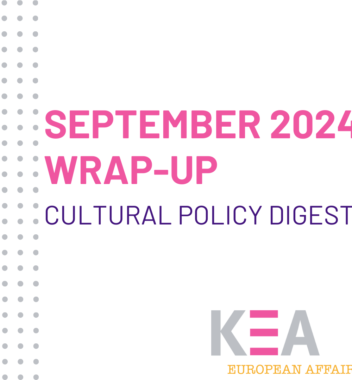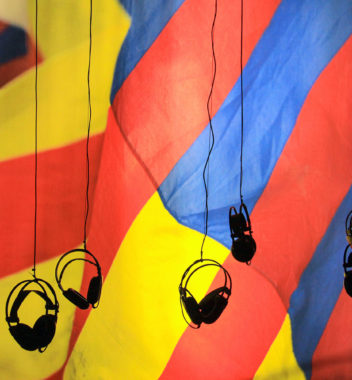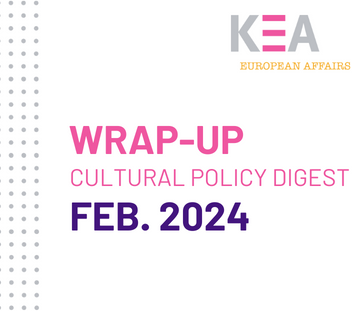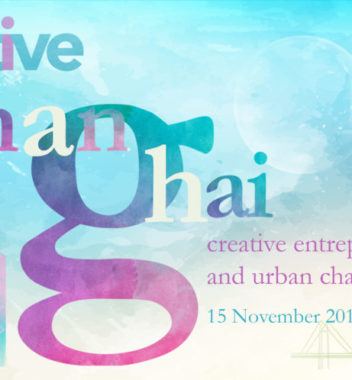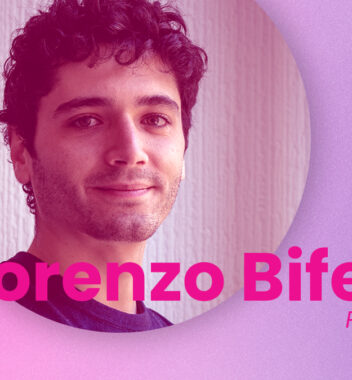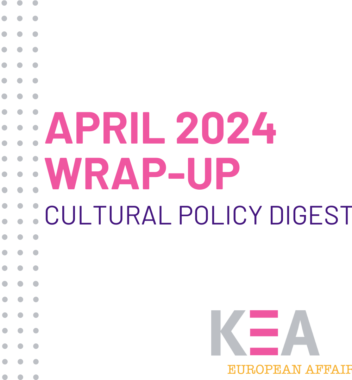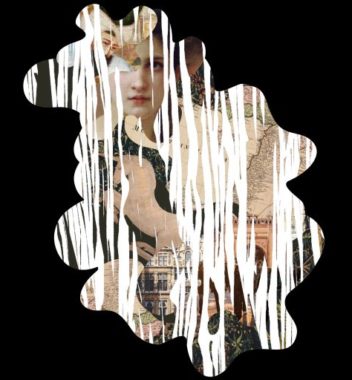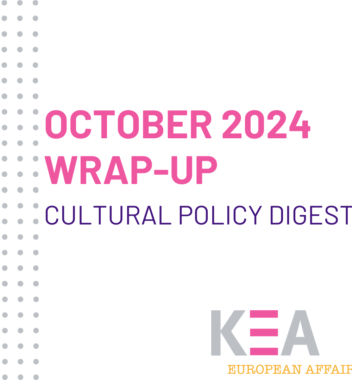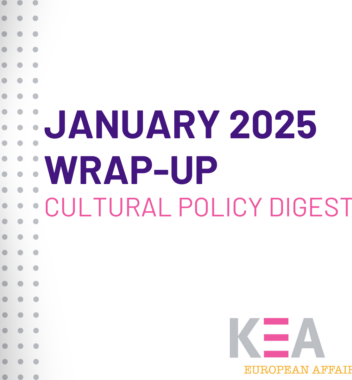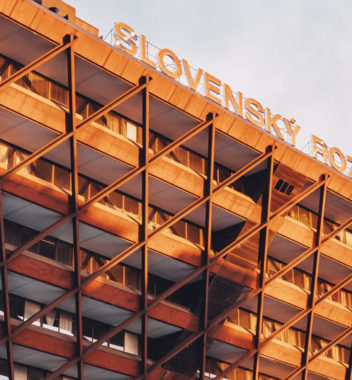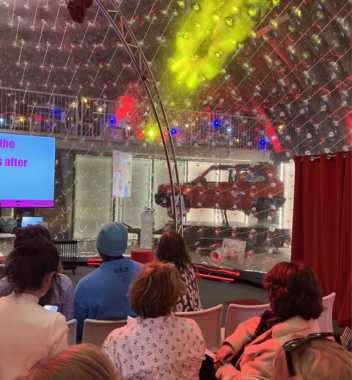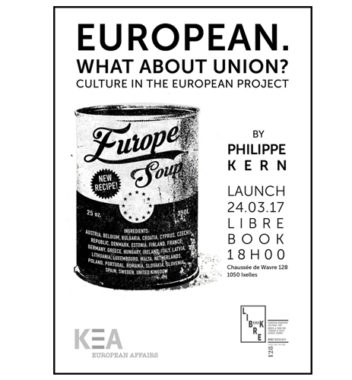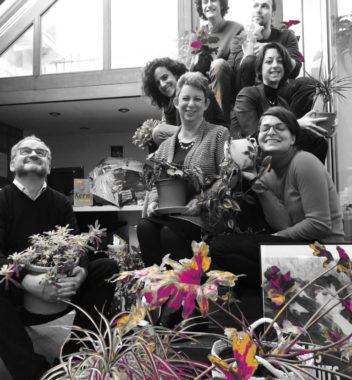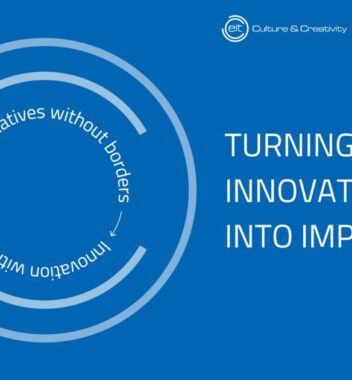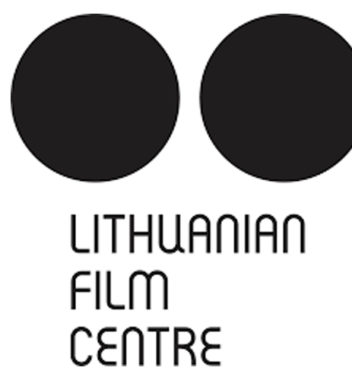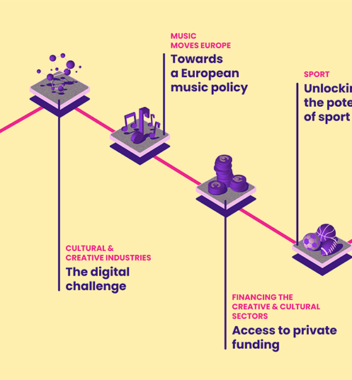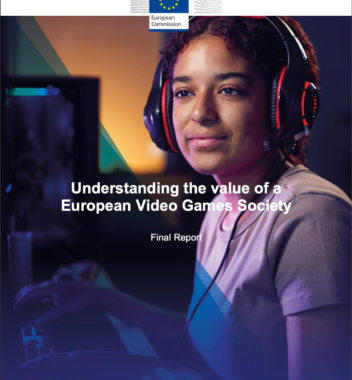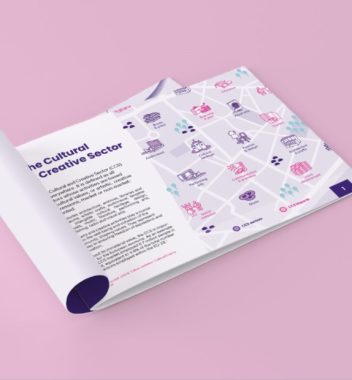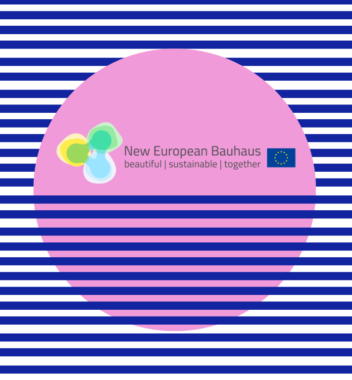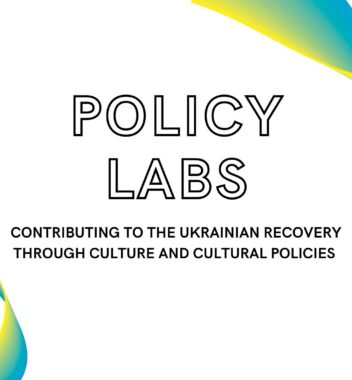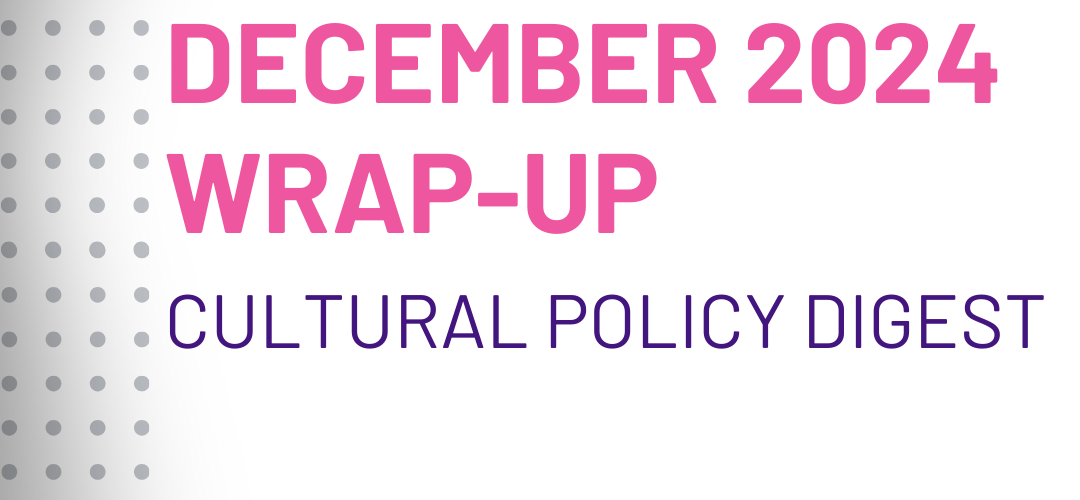
As 2024 draws to a close, we reflect on a year that has left far-reaching impacts on the cultural policy landscape in Europe.
The European cultural community has faced crucial moments of advocacy and reflection, including the defense of artistic freedom, the strengthening of international cultural diplomacy and debates on the intersection of culture and technology. These milestones underscore the urgency of aligning cultural policies with the pressing realities of our time, including political polarization, digital innovation and the ongoing struggle for inclusion.
Looking ahead, 2025 offers opportunities to build on these developments and confront new challenges. The preparation of the next Multiannual Financial Framework will shape the future of cultural funding, while initiatives like the AI Code of Practice promise to influence the cultural sector in transformative ways. At the same time, the rising pressures on cultural governance—amid authoritarian trends and technological shifts—demand bold, collaborative responses.
In this final issue of the year, we explore the defining moments of 2024 and set the stage for the critical conversations and decisions that will shape cultural policy in 2025.
December 3rd: A global commitment to disability rights
Since its establishment by the United Nations in 1992, the International Day of Persons with Disabilities has been observed worldwide to foster a deeper understanding of disability issues and to advocate for the dignity, rights, and well-being of persons with disabilities. This observance also highlights the societal and cultural benefits of integrating persons with disabilities into all aspects of life, including political, economic, social, and cultural domains.
This year’s observance of the International Day of Persons with Disabilities is an opportunity to reaffirm our collective commitment to ensuring that cultural spaces are truly inclusive, empowering disabled artists to shape and transform the artistic landscape.

The challenges and opportunities for disabled artists in the cultural sector have been rigorously analysed in publications like Time to Act: How Lack of Knowledge in the Cultural Sector Creates Barriers for Disabled Artists and Audiences (2021) and its follow-up, Time to Act: Two Years On (2023). Both studies, commissioned by the British Council as part of Europe Beyond Access, offer invaluable insights into reducing barriers and fostering greater inclusion in the performing arts.
For an in-depth exploration of these issues, consult the recent publication by On the Move, which builds upon these studies and focuses on the international mobility of disabled artists and cultural professionals. It can be accessed here: Cultural Mobility Flows: The International Mobility of Disabled Artists and Culture Professionals.
Also, Europe Beyond Access has become a vital initiative in advancing the careers and creative innovations of disabled artists within contemporary dance and theatre. Since its inception in 2018, the program has worked to dismantle systemic barriers, enabling disabled artists to thrive at the highest levels of the performing arts. Through a network of prominent cultural organizations, the program has promoted a transformative shift in how disabled artists are commissioned, presented, and supported.
The project, renewed for another four years under the current Creative Europe programme (2024–2027), will expand its consortium to include ten cultural organisations across Europe, such as Skånes Dansteater (Sweden), Holland Dance Festival (Netherlands), and Mercat de les Flors (Spain), among others. The British Council, which initiated the first phase, remains an associated partner in this second iteration.
Over the next four years, Europe Beyond Access will focus on:
- Commissioning and presenting dozens of new works by disabled artists, including three major international co-productions.
- Reducing geographic and artistic isolation for disabled artists through international exchange and collaboration.
- Advocating for systemic change in the cultural sector by addressing ableism and creating tools for greater inclusion.
EU Budget 2025 Approved
The European Union’s budget for 2025, including key allocations for cultural programs, has been officially approved and signed into law by European Parliament President Roberta Metsola. The final budget reflects close alignment with the European Commission’s initial proposal from June, ensuring robust support for cultural initiatives and programs across Member States. For further details on the EU budget for 2025, access the official documentation here.
Creative Europe Programme
The Creative Europe programme, a cornerstone of EU cultural policy, will receive €352 million in 2025, distributed as follows:
- Culture Strand: €108 million in commitments
- Media Strand: €189.5 million in commitments
- Cross-Sectoral Strand: €29.3 million in commitments
- Support Expenditure: €25.6 million allocated to programme administration
Horizon Europe Cluster 2
For Horizon Europe’s Cluster 2, “Culture, Creativity and Inclusive Society,” a budget of €303.3 million in commitments has been secured.
Reversal of proposed cuts
Earlier this year, the Council proposed significant reductions in funding for flagship programs, including €295 million for Erasmus+, €400 million for Horizon Europe, and €34 million for the Citizens, Equality, Rights and Values Programme (CERV). However, after negotiations between the European Parliament and the Council, these cuts were reversed, resulting in modest increases for each program:
- Erasmus+: +€62 million
- Horizon Europe: +€25 million
- CERV: +€1 million
Upcoming calls
As part of the Creative Europe programme, calls for cooperation projects are expected to be released soon, presenting an opportunity for cultural stakeholders to engage in cross-border collaborations and innovative initiatives.
Updates from the CULT Committee
EU Support for Ukraine’s Cultural Heritage
On December 10, the Chair of the CULT Committee, Nela Riehl, met with Mykola Tochytskyi, Ukraine’s Minister of Culture and Strategic Communications. Following the meeting, Chair Riehl issued a statement underscoring the European Union’s responsibility in safeguarding Ukraine’s cultural heritage amidst ongoing challenges.
Highlighting the vital role of cultural preservation in strengthening social cohesion, the Chair emphasized the EU’s commitment to supporting Ukraine in its efforts to protect, reconstruct, and sustain cultural artefacts, traditions, and customs. This collaboration reflects a broader European dedication to cultural solidarity and resilience.
Presentation of the Hungarian Presidency
Also on December 3, 2024, representatives of the Hungarian Council Presidency presented their priorities and achievements across culture, education, youth, and sports. Balázs Hanko, Minister of Culture and Innovation, alongside State Secretaries Zoltán Viktor Maruzsa and Ádám Schmidt, outlined a comprehensive agenda focused on addressing demographic challenges and enhancing European competitiveness.

Key outcomes of the Hungarian Presidency included:
- Education: Adoption of Council conclusions on “Strategic partnerships in education and training,” emphasizing stronger connections between education systems and the workforce. Discussions also addressed the use of mobile phones in schools and recommendations for careers in higher education.
- Youth: Approval of a work plan for the EU Youth Strategy (2025–2027) and conclusions on providing “glocal” opportunities for young people in rural and remote areas, fostering youth engagement at local and global levels.
- Culture: Focus on improving access to culture, particularly for disadvantaged groups and remote areas, and exploring the links between health and cultural participation. Discussions also covered expanding digital access to cultural heritage.
- Sport: Emphasis on legacy building from major sporting events and promoting healthier lifestyles. The Council also addressed the European Sport Model and its potential societal and economic benefits.
- Media Policy: Prioritization of media literacy for children, reflecting the growing importance of equipping younger generations with critical skills to navigate the digital information landscape.
MEPs engaged in discussions, raising questions on a range of topics, including the independence of universities in Hungary, the integration of AI in education, and the implementation of key EU programs like Erasmus+ and Horizon Europe. Read more here.
Launch of the Prêt Culture 14 benefiting the Cultural Sectors in Brussels and Wallonia
The Culture Loan has been officially launched as a financial mechanism tailored to meet the pressing needs of cultural operators and institutions in Brussels and Wallonia. This initiative responds to the challenges facing the cultural sector, including audience engagement, digital transformation, and the energy transition, by enabling operators to implement large-scale strategies and ambitious projects.
Designed for both public and private cultural actors, the loan prioritizes amortizable investments such as infrastructure and equipment. Additionally, it can partially finance innovative approaches in human resource management, reflecting the evolving dynamics within the cultural sector.
The loan underscores a commitment to ensuring the long-term resilience and adaptability of cultural institutions by providing a tool for sustainable development and strategic growth.
This initiative marks a significant step in empowering cultural stakeholders to navigate contemporary challenges while laying the groundwork for a robust and forward-looking cultural sector. For further details regarding eligibility and application procedures, consult the official Prêt Culture 14 webpage.
Looking ahead to Cultural Policy in 2025
As we close 2024, the European cultural landscape stands at a crossroads shaped by profound political, technological, and social challenges. The past year has provided ample material for reflection: the rise of far-right influence, the reshaping of the European Parliament and Commission, and the adoption of landmark regulations —all unfolding in the context of intensifying global tensions.
Looking ahead, 2025 promises to be a defining year for cultural policy. Among the most pressing topics to follow:
- The Next Multiannual Financial Framework (MFF): Preparations for the EU’s seven-year budget (2028–2034) will dominate discussions. With the European Commission’s proposal expected in mid-2025 and critical negotiations led by the Polish and Danish Presidencies, this will shape the long-term funding landscape for culture.
- Cultural Resistance and Far-Right Influence: As authoritarian tendencies deepen in some Member States, cultural policy risks becoming a battleground for artistic freedom, public funding, and ideological control.
- AI and Cultural authenticity: The adoption of the AI Code of Practice in May will test the balance between technological innovation and the preservation of human creativity. How will cultural stakeholders navigate this rapidly evolving terrain?
- International Cultural Diplomacy: UNESCO’s Mondiacult conference in Barcelona will spotlight culture’s role in fostering international cooperation and sustainability.
The stakes are high, and the urgency is clear: culture is not merely a tool for addressing societal issues; it is the space where identities are negotiated, futures are imagined, and democracies are either strengthened or undermined. In the year ahead, the European cultural community must rise to the challenge, forging policies that protect artistic freedom, embrace innovation, and reaffirm the fundamental value of culture in shaping a resilient, inclusive society.

